Sarah Hennies
Lampo Performance Series
Nov 11, 2023
(7pm)
Reservations required
Sarah Hennies premieres Standing Water !!!—her first new composition in five years—and writes that the music “draws from my past work on the vibraphone alongside field recordings and, most significantly, a newfound interest in gongs and other resonant objects.” Hennies reflects, “While my past percussion music often involved long periods of repeating single sounds and chords, this new work operates on a different time scale—more spacious, less physically grueling, but no less focused on immersing the listener in its resonant world.” She concludes, “Originally stemming from work I am doing to document many unheard works by the percussionist/composer Michael Ranta, these instruments have found their way into my own practice in this new solo work and a major duo project with New York bassist Tristan Kasten-Krause.”
Sarah Hennies (b.1979, Louisville) is a composer based in upstate New York whose work is concerned with a variety of musical, sociopolitical, and psychological issues including queer and trans identity, love, intimacy, psychoacoustics, and the social and neurological conditions underlying creative thought. She is primarily a composer of acoustic chamber music, but is also active in improvisation, film, and performance art. She presents her work internationally as both a composer and percussionist with notable performances at MoMA PS1 (NYC), Monday Evening Concerts (Los Angeles), Le Guess Who (Utrecht), Festival Cable (Nantes), send + receive (Winnipeg), O’ Art Space (Milan), Cafe Oto (London), ALICE (Copenhagen), and the Edition Festival (Stockholm). As a composer, she has worked with a wide array of performers and ensembles including Bearthoven, Bent Duo, Claire Chase, ensemble 0, Judith Hamann, R. Andrew Lee, The Living Earth Show, Talea Ensemble, Thin Edge New Music Collective, Two-Way Street, Nate Wooley, and Yarn/Wire.
Her groundbreaking audio-visual work Contralto (2017) explores transfeminine identity through the elements of “voice feminization” therapy, featuring a cast of transgender women accompanied by a dense and varied musical score for string quartet and three percussionists.
Hennies is the recipient of a 2019 Foundation for Contemporary Arts Grants to Artists Award, a 2016 fellowship in music/sound from the New York Foundation for the Arts, and has received additional support from the Fromm Foundation, Mid Atlantic Arts Foundation, New Music USA, the New York State Council on the Arts, and the Creative Work Fund.
As a scholar and performer, she is engaged with ongoing research about the percussion music of Iannis Xenakis and a recording project to document music by the American percussionist and composer Michael Ranta. She teaches at Bard College.
Since 2010, the Graham Foundation has partnered with Lampo to produce an international performance series held at the Madlener House. Lampo, founded in 1997, is a nonprofit organization for experimental music and intermedia projects.
Image: Sarah Hennies performing in A Kind of Ache, 2022. Courtesy the artist. Photo: David Andrews

New York Review of Architecture in Chicago
NYRA
Nov 04, 2023
(2pm)
Free; RSVP required
New York Review of Architecture visits Chicago during the Chicago Architecture Biennial opening weekend to connect with Chicago-based contributors and readers. Join New York Review of Architecture and Zach Mortice, Anjulie Rao, and Pete Segall, for readings and conversation at the Graham Foundation.
This program is presented in partnership with the Chicago Architecture Biennial, CAB 5: This is a Rehearsal
New York Review of Architecture is an independent publication that reviews architecture in New York, among other places. In addition to its print issues, New York Review of Architecture also publishes a weekly online newsletter, called Skyline, and hosts events. It serves the public who are too busy building to keep up with the flood of conversation around the built environment with reviews that are concise, engaged, and a little irreverent. New York Review of Architecture was founded in 2019 by Nicolas Kemper, Dante Furioso, Sarah Kasper, James Coleman, and Julie Turgeon. New York Review of Architecture has been supported by the Graham Foundation.
Pete Segall lives in Chicago. His fiction and nonfiction have appeared in The Drift, New York Review of Architecture, Defector, Conjunctions, and elsewhere.
Zach Mortice is a Chicago design journalist and critic that focuses on the intersection of public policy with architecture and landscape architecture.
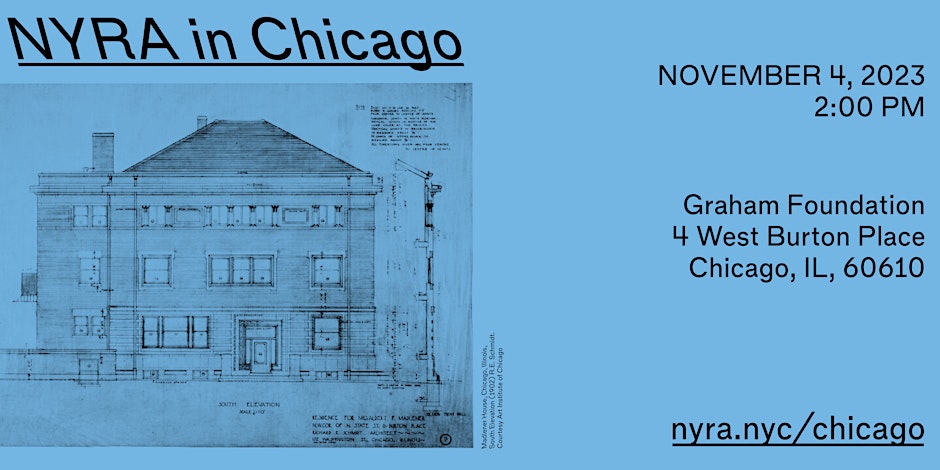
Related Links
2021 | New York Review of Architecture, New York Review of Architecture, 2021
http://www.grahamfoundation.org/grantees/6254-new-york-review-of-architecture-2021
2022 | New York Review of Architecture, New York Review of Architecture, 2022
http://www.grahamfoundation.org/grantees/6404-new-york-review-of-architecture-2022
2023 | New York Review of Architecture, Los Angeles Review of Architecture
http://www.grahamfoundation.org/grantees/6530-los-angeles-review-of-architecture

Gallery & Bookshop Hours
Nov 01, 2023 - Jan 27, 2024
(12pm)
WED–SAT, 12–5 p.m.
CURRENT EXHIBITION
CAB 5: This is a Rehearsal
Curated by Floating Museum
Through January 27, 2024
GALLERY AND BOOKSHOP HOURS
Wednesday–Saturday, 12–5 p.m.
Free admission, no reservations required
CAB 5: This is a Rehearsal at the Graham features work by:
Cecil McDonald, Jr.
Dream The Combine
interim studio (Nora Akawi and Eduardo Rega Calvo) with Jumanah Abbas; Salim al-Kadi, Khaled Malas, Alfred Tarazi, and Jana Traboulsi (Sigil Collective); Taesha Aurora; Jeankarlos Cruz; Muna Dajani; Nadine Fattaleh; Martina Duque Gonzalez; Haitham Haddad (Studio Mnjnk); Aamer Ibraheem; Mapping Memories of Resistance project (Birzeit University, London School of Economics, Al-Marsad Arab Center for Human Rights in the Golan); Emad Madah; Rami Nakhle; Daniel Ruiz; Frederick Rapp; and Holly Nicole Smithberger
Larissa Fassler
Curated by the interdisciplinary arts collective the Floating Museum, CAB 5: This is a Rehearsal features the work of more than 80 local and global participants in exhibitions at the Chicago Cultural Center, Chicago Architecture Center, Graham Foundation, the James R. Thompson Center, and other sites across the city.
For more information on the exhibition, CAB 5: This is a Rehearsal, click here.

Ginger Nolan, “Black Capitalism and the City: African American Insurance and the Actuarial Imagination”
SAH | Places Prize Lecture
Oct 20, 2023
(5:30pm)
Talk
Free; RSVP required
In partnership with the Society of Architectural Historians (SAH) and Places Journal, the Graham is pleased to present a new lecture by architectural historian Ginger Nolan, the inaugural recipient of the SAH | Places Prize on Race and the Built Environment, a unique collaboration between SAH and Places that supports the production of a major work of public scholarship that considers the history of race and the built environment through a contemporary lens.
Nolan’s talk explores how African American-owned insurance companies negotiated the (often vexed) aims of pursuing financial gain while also trying to create more equitable cities. For most of the twentieth century, these insurance companies controlled more wealth than any other African American enterprise and played an outsize role in shaping cities and suburbs. In efforts to reverse the effects of redlining, disinvestment, and segregation, these companies used housing developments and corporate architecture—including the first and only African American skyscraper—to redress discriminatory forms of urbanism and racial stereotypes. The talk will evaluate the urban and architectural interventions of African American insurance companies, using the companies' office buildings, housing developments, and mortgage-lending practices to engage debates around Black capitalism and Black Marxism. While recent scholarship has focused on the biopolitical tendencies of the white-owned insurance industry, the history of African American insurance demands a more subtle analytical framework, as these companies’ efforts vacillated between the biofinancial logics of actuarial techniques and, on the other hand, strategies of care and contestation.
Following the talk, architectural historian Charles L. Davis II will moderate a discussion with Nolan. Davis is an associate professor of architectural history and criticism at the University of Texas at Austin and chair of the SAH Race + Architectural History Affiliate Group.
SAH will host a reception at the Charnley-Persky House, located at 1365 N Astor St, immediately following the event.
This program is presented in partnership with the Chicago Architecture Biennial: CAB 5: This is a Rehearsal.
Ginger Nolan is an assistant professor of architectural history and theory at the University of Southern California. Her research explores relationships between architecture, media technologies, race, and governmentality. She has published through the University of Minnesota Press the books Savage Mind to Savage Machine: Racial Science and Twentieth-Century Design (2021) and The Neocolonialism of the Global Village (2018). She is currently researching race, actuarial thought, and urbanism, focusing on the role of twentieth-century African American insurance companies in shaping cities and suburbs in the United States. Her work has been recognized by the the Deutscher Akademischer Austauschdienst, Graham Foundation, Social Science Research Council, and the Terra Foundation. In 2013 Nolan was awarded the Carter Manny Writing Award by the Graham Foundation for her dissertation, “Savage Mind to Savage Machine: Techniques and Disciplines of Creativity, ca. 1880–1985.”
Founded in 1940, the Society of Architectural Historians is an international nonprofit membership organization that promotes the study, interpretation and conservation of architecture, design, landscapes and urbanism worldwide. SAH serves a network of local, national and international institutions and individuals who, by profession or interest, focus on the built environment and its role in shaping contemporary life. SAH promotes meaningful public engagement with the history of the built environment through advocacy efforts, print and online publications, and local, national and international programs.
Founded at MIT and Berkeley in 1983, Places Journal is an independent, nonprofit journal of public scholarship on architecture, landscape, and urbanism. Bridging from the university to the profession to the public, Places features scholars, journalists, designers, and artists who are responding to the profound challenges of our time: environmental health and structural inequity, climate crisis, resource scarcity, human migration, rapid technological innovation, and the erosion of the public sphere.
Established in 2021, the SAH | Places Prize was envisioned by Charles L. Davis II, associate professor of architectural history and criticism at the University at Buffalo, SUNY, and cochair of the SAH Race + Architectural History Affiliate Group. The winner of the SAH | Places Prize receives an honorarium to produce a major work of public scholarship to be presented as a public lecture through the Society of Architectural Historians and published in Places Journal.
SAH Race + Architectural History Affiliate Group was established by the Society of Architectural Historians in 2019 to promote research activities that analyze the racial discourses of architectural history, past and present. The group aims to create a platform for existing and new scholarship in the field; to reach new publics for this work; and to develop mentorships and networking opportunities for graduate students and junior scholars.
Image: Construction site, Golden State Mutual Life Insurance Home Office Building, Los Angeles, ca.1948, designed by the office of Paul Williams. Golden State Mutual Life Insurance Company records (Collection 1434). UCLA Library Special Collections, Charles E. Young Research Library, University of California, Los Angeles, Box 61, Folder 11
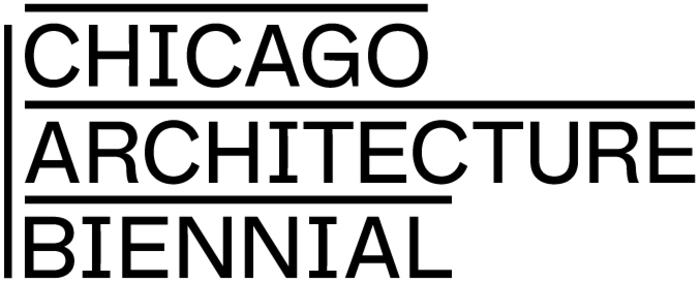

Judith Hamann
Lampo Performance Series
Oct 07, 2023
(7pm)
Performance
Reservations required
Judith Hamann performs their Humming Suite, a concert-length program focused on cello and voice in different permutations, alongside companion pieces that explore similar musical territories.
“Humming traces a particular kind of interiority,” says Judith. There is an intimacy and vulnerability in a close-mouthed hum that teeters on the edge of audibility. In performance, bow stroke and breath often break, disturb, and interfere as much as they meld together. And it is not always clear where sounds are coming from, suggesting something like a form of ventriloquism. Taken together, the outcome is a collection of works of delicate balance and volatile fragility.
Judith Hamann (b.1983, Melbourne, Australia) is a composer and cellist, currently based in Berlin. Their work encompasses performance, electroacoustic composition, site-specific generative work, and microtonal systems in a process-based creative practice. Judith has performed widely, including at Tectonics (Glasgow, Adelaide, Athens), UnSound (New York City), Sonic Acts (Amsterdam), Maerzmusik (Berlin), CTM (Berlin), the Venice Biennale Musica (Venice), Tokyo Experimental Festival (Tokyo), and Festival Aural (Mexico City). Collaborators include Marja Ahti, Joshua Bonnetta, Pascale Criton, Charles Curtis, Sarah Hennies, Yvette Janine Jackson, and Anike Joyce Sadiq. Judith’s work has been published by Blank Forms, Black Truffle, Another Timbre, and Longform Editions. Judith holds a D.M.A. from the University of California San Diego.
Since 2010, the Graham Foundation has partnered with Lampo to produce an international performance series held at the Madlener House. Lampo, founded in 1997, is a nonprofit organization for experimental music and intermedia projects.
Lampo, established in 1997, supports artists working in new music, experimental sound and other interdisciplinary practices. The Chicago-based organization's core activity has been and remains its performance series. Rather than making programming decisions around tour schedules, Lampo invites selected artists to create and perform new work, and then the organization provides the space, resources and curatorial support to help them fulfill their vision. Lampo also organizes artist talks, lectures, screenings and workshops, and publishes written and recorded documents related to its series.
Photo: Martina Biagi

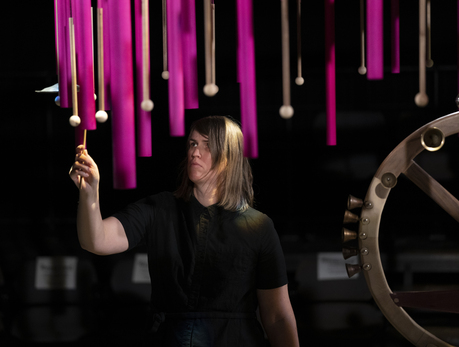
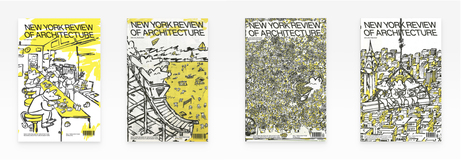

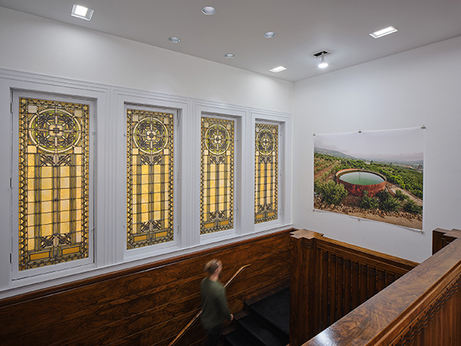
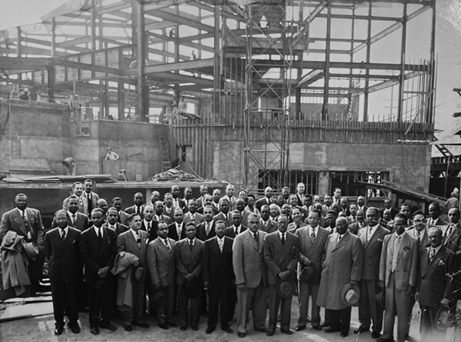

 PREVIOUS POSTS
PREVIOUS POSTS